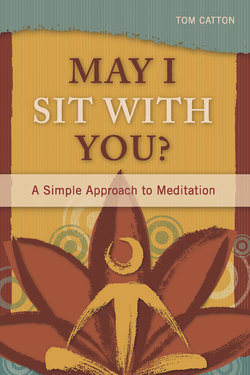Читать книгу May I Sit with You? - Tom Catton - Страница 11
На сайте Литреса книга снята с продажи.
ОглавлениеCHAPTER ONE
THE EGO
The question is not “Why does ego constantly insult us?” but rather “Why do we listen?”
Ego, our lifetime companion, is the reason we will spend our tenure on Earth in spiritual practice. We can see when working the Twelve Steps that their intent is to rid ourselves of this adversary, cleverly disguising itself as a whisper from the divine.
Admittedly the efforts of ego should be applauded; it performs its assigned task with a vengeance, always in pursuit to avert our attention from our true nature. The vehicle it uses is the unobserved mind.
We experience thousands of uninvited thoughts per hour, accompanied by their sidekicks, emotions. Many people move through life feeling overwhelmed by emotions, as if an avalanche is pouring over them. They become stressed, depressed, sad, and angry—the list goes on. This process perpetuates the everlasting search for the hidden treasure, the secret key that will relieve these unwanted symptoms and subsequent feelings. We become convinced that more—more money, a more loving relationship, or a bigger house—will offer us relief. And of course, there is the obvious and ultimately damaging answer for many: a substance, something that will step in to tranquilize our emotional wounds. Ego will try to convince you that if you get what you’re craving, you will be satisfied.
The real solace for me in this life, as it has been for many, was my introduction to the Twelve Steps, the superstar being Step Eleven. Through the practice of meditation I have learned to just sit and observe. I love the magic of my breath, which I feel by paying attention as I breathe in and breathe out. This practice also brings my awareness to uninvited thoughts as they arise. I’m able to sit and note their presence, while letting them travel on by as I say good-bye, repeatedly returning to the breath.
When we do not observe the nature of the mind, it’s as if the mind has a mind of its own. Soon we are once again lost in our emotions. I’m confronted many times a day by obstacles that my thoughts try to convince me are real. But the practice of meditation acts as a translator to what is going on within. When feelings arise unobserved, they can take us captive. We become subject to anything they suggest, which may be anger, fear, or sadness. Going to our meditation cushion each morning, we can look forward to the practice of observing what arises. With a sudden awareness, we pinpoint why we are sad—the loss of a job, for example—but with clarity we see that many areas of our life are full of loving kindness. We can then let the sadness be with us, but it is not our whole life. We make friends with these uninvited guests, these emotions, learning to embrace them as they arise, bringing intimacy to the mystery of our mind.
My introduction to the twelve-step philosophy of “one day at a time” was a surprise awakening. It was a concept that freed my mind from thinking too far ahead, but twenty-four hours has now become a lifetime of thoughts. Meditation practice is about coming back to the present moment; even thinking of things in the near future can be the ego’s attempt to open an unwanted doorway within.
I find that when grace snatches me out of the hands of ego and I remain present, I still cannot deny feeling “the presence.” It’s like landing in the lap of the divine. The joy and bliss that arise in that moment cannot be described with mere words. Is there more to enlightenment than being comforted in the moment? Maybe, maybe not.
While you practice meditation, I encourage you to sit through the restlessness, which is only the rhetoric of the ego. Restlessness is the ego’s attempt to detour the seeker from sitting and touching his or her true nature. Countless times meditation practitioners have sat upon their meditation cushions and immediately experienced an explosion of thoughts. The goal of the practice is to disarm these thoughts. Our minds will unleash every distraction to convince us to stop meditating and busy ourselves with the nonsense of some unimportant task in a continued attempt to capture our attention.
It seems, at times, that the mind’s sole purpose is to keep the practitioner distracted. A single inhalation and exhalation will introduce the silence of our own truth. The veil that separates us from our divine nature is so thin that it can be dispelled by the gentle breeze of breathing mindfully.
Simply put, the ego cannot survive in the moment. The practice of mindfulness is the invitation to the spiritual experience that will cause a profound personality change. This will result in the exhaustion and ultimate collapse of the ego.
